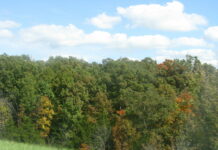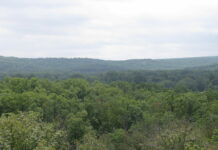Photo credit: DiasporaEngager (www.DiasporaEngager.com).
from EMEKA OKONKWO in Abuja, Nigeria
Nigeria Bureau
ABUJA, (CAJ News) – CLIMATE change, desertification and insufficient rainfall are among multiple factors compounding tensions between farmers and herders in northwestern Nigeria.
Rapid and exponential population growth, leading to an attendant increase in demand for natural resources, including suitable land for both farming and transhumance activities, is exacerbating the situation.
“Consequently, these factors intensify competition for the already scarce natural resources, often resulting in conflicts that can escalate into violent confrontations between farming and herding communities,” said a spokesperson of the International Organisation for Migration (IOM).
It reports the crises are most severe in Kaduna and Katsina states.
Blamed for the herder-farmer conflict, transhumance is the action or practice of moving livestock from one grazing ground to another in a seasonal cycle, typically to lowlands in winter and highlands in summer.
In January 2024, IOM’s Transhumance Flow Monitoring tool identified 3 548 herders in Kaduna and 873 herders in Katsina.
The animal count was estimated at 72 011 for Kaduna and 21 422 for Katsina State.
Notably, 92 percent of the total number of herders departed from states within Nigeria, while the remaining 8 percent departed from neighbouring Niger to the north.
Tensions between farmers and herders usually assume ethnic and religious dimensions in Nigeria.
Farmers are largely Christian and herders mostly Muslim in a country of more than 220 million, divided roughly in half between Christians and Muslims.
– CAJ News
Source of original article: News – CAJ News Africa (www.cajnewsafrica.com).
The content of this article does not necessarily reflect the views or opinion of Global Diaspora News (www.GlobalDiasporaNews.com).
To submit your press release: (https://www.GlobalDiasporaNews.com/pr).
To advertise on Global Diaspora News: (www.GlobalDiasporaNews.com/ads).
Sign up to Global Diaspora News newsletter (https://www.GlobalDiasporaNews.com/newsletter/) to start receiving updates and opportunities directly in your email inbox for free.

































